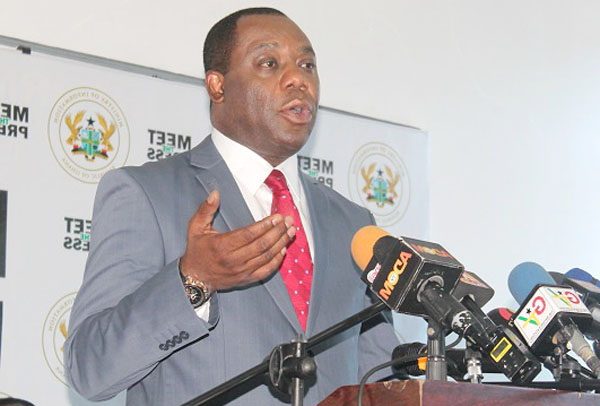Dr. Matthew Opoku Prempeh – Minister oif Education
A CABINET approval has been made for two major initiatives to boost Science Technology, Engineering and Mathematics (STEM) Education in Ghana.
The initiatives are targeting basic and senior high schools.
Information Minister, Kojo Oppong Nkrumah made the disclosure to the media on Tuesday, 18th June, 2019 in Accra.
He said the first initiative is the construction, provision of equipment and training of trainers for regional science Technology Engineering Arts and Mathematics Centres for SHS System.
According to him, “the project which is budgeted at Gh¢ 88million is a school based interactive science and technology learning centre, which would provide practical approaches towards learning in Senior High Schools.”
The Minister explained that the overall aim of the project is to enrich the academic contents offered by formal training in STEM.
The project, he said, would improve the pedagogy of teaching of basic maths and science, address the fear of teaching and learning maths and science as well as provide technology kits for maths and science education.
‘It would also provide ICT equipment to improve the competency of both teachers and students,” he added.
Project Phases
The first phase would comprise the construction of 10 Centres at Gh¢ 88 million and another six additional centres.
“Upon receipt of Parliamentary approval and disbursement of funds this phase is expected to be completed with two years,” he revealed.
The second, he noted, is a Basic Science Maths Technology Engineering and Mathematics programme at £ 76 million for delivery and installation of BSTEM equipment and training to improve quality of science and Maths education within the basic education system in Ghana, in addition to introducing basic engineering and technology into basic edification.
Building on a successful pilot program conducted in 2008 with 100 JHS teachers, the Minister noted that “the BSTEM program is aimed at
developing the teaching of science and maths to better prepare teachers to impart practical and problem solving skills to pupils.”
He added that it would also introduce engineering and technology concepts at the basic education levels, improve the quality of science and maths education and resources at the basic levels, as well as increase science and maths participation at the SHS levels.
The program would cover all basic schools in Ghana in three phases over a five year period and includes training modules for regional advisors and teachers, according to the Minister.
“It is expected that the two initiatives will significantly improve the teaching and learning of science and maths in our schools and in so doing improve the analytics and problem solving skills of our young ones in the medium to long term,” he explained.
BY Melvin Tarlue


